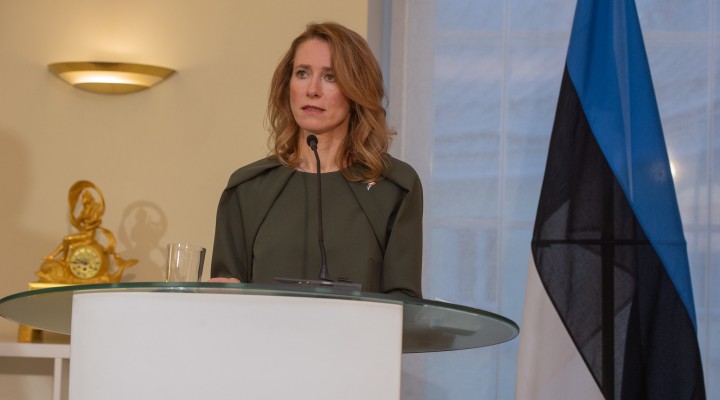The security of Estonia begins at the borders of Poland, Lithuania, and Latvia. We stand firm with our neighbours and help them cope, especially through political and diplomatic support. We are also ready to offer practical support to Poland.
We discussed the security situation in our region. We do not see any reduction in tensions on the EU–Belarusian border, on the contrary: the attack shows no signs of stopping. Attempts to cross the border have become more violent. We anticipate that the pressure on the border will remain, as Lukashenko has not yet achieved all his goals.
In this tense situation, the rapid and efficient exchange of information is particularly important. The allies are actively consulting at various levels, exchanging information, and planning cooperation in international organisations. It is important to have common messages and an action plan. We all have the same goal: to ensure the security of Europe and the unity of our messages and actions.
The European Union and our partners have a common understanding of what is happening: this is a hybrid attack on the external borders of the EU and NATO. This is not a migration crisis. The recent statement by the G7 condemning the actions of the Belarusian regime is also a clear sign of a broad common understanding.
It is clear that a long confrontation is in the interests of the Belarusian regime, as it will help divert attention from the continuing brutal repressions and human rights abuses in Belarus. There are more than 800 political prisoners behind bars.
The focus of our future actions should be as follows:
- Rapid enforcement of sanctions. We will not succumb to pressure or blackmail from the Lukashenko regime: the immediate enforcement of new and stronger sanctions is one of the keys to combating the hybrid attack.
- We will focus on continued diplomatic pressure to suspend flights from countries of origin and transit. We have had diplomatic success – many flights have stopped. This pressure must be maintained, and the EU institutions will continue to play an important role here.
- The focus is on alleviating the humanitarian situation in Belarus and repatriating people. The main responsibility here lies with the Lukashenko regime – Minsk must allow UN aid organisations full access and freedom of action in Belarus. People fraudulently lured to Minsk are legally in Belarus and have been issued Belarusian visas. They must be guaranteed security on the territory of Belarus, and Belarus must allow them to return to their home countries.
We also discussed with the Polish Prime Minister the importance of supporting Ukraine. We are monitoring the military manoeuvres of Russia near the borders of Ukraine very closely. The war started by Russia in the eastern part of Ukraine is going on for the eighth year, and we know that Moscow is ready to escalate it at a convenient time. In its rhetoric, Russia has been attacking Ukraine more and more aggressively recently – there is a desire to further strain relations with Ukraine. The goal of Allied cooperation is to prevent military escalation. NATO will continue to monitor the situation and consult closely with the Allies, Ukraine, and the European Union.
Our long-standing position is that the defence and deterrence stance of NATO needs to be strengthened. The current situation only confirms the need to continue working even harder in this area. NATO Ministers of Foreign Affairs will also discuss these issues soon in Riga.
To conclude, the Estonian border is well guarded and currently not under threat. However, considering what is happening in nearby countries, we must also be prepared to combat any threats. Therefore, Estonia has consistently strengthened its external border and we have increased our readiness to deal with all kinds of situations. Yesterday, I also visited Narva to see how the additional reservist training ‘Quill 2021’ is going.
Photo by Raigo Paljula.
